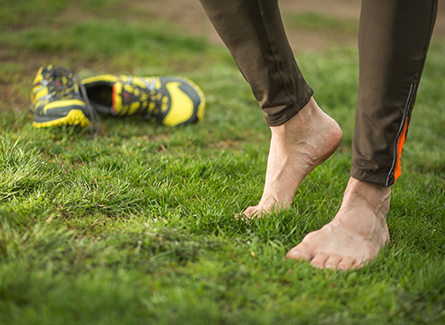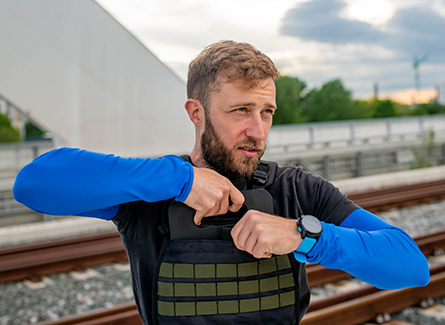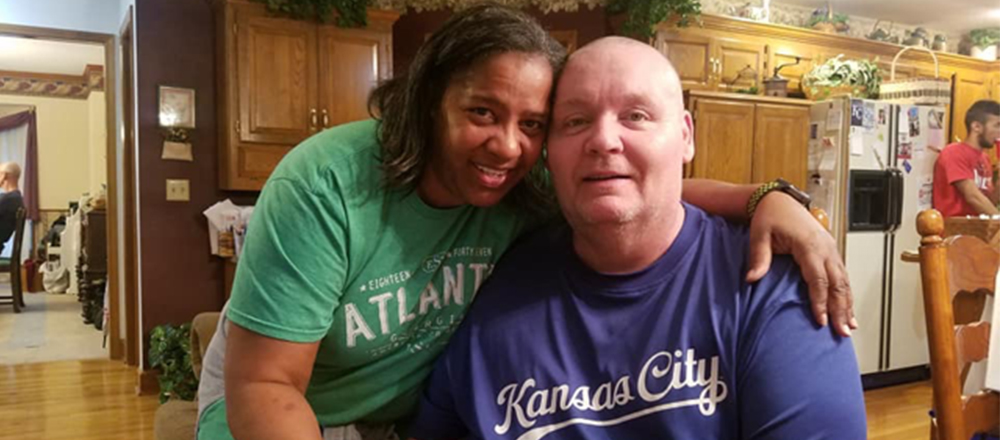To shoe or not to shoe? The pros and cons of barefoot running
September 16, 2025By: Kim Shopper
Categories: Your Wellness

In recent years, interest has increased in barefoot running, as well as running with what are known as “minimalist” shoes. Barefoot running enthusiasts often say that shoes confine the muscles in their feet and cause the heel to strike the ground in an unnatural way.
As you might suspect, podiatrists and sports medicine providers get a lot of questions about the practice. While there’s not a lot of research about the benefits of barefoot running, here are answers to some common questions.
Is barefoot running more energy efficient?
There is some evidence to support that idea, but there’s no evidence to show that running barefoot results in reduced injuries or improved performance.
Can barefoot running build up my foot muscles or improve the mechanics of my gait?
Absolutely, barefoot running will build your foot muscles and help you develop a different gait. But, there’s no peer-reviewed evidence that increased foot musculature or a different gait leads to fewer injuries or better performance.
Can shoeless running improve my sense of foot and leg movement or “feel”?
There is no doubt that barefoot runners can develop a better “feel” for the road and a better sense of how their joints are behaving. But, once again, there’s no evidence that this results in fewer injuries or better performance.
Does shoeless running reduce the impact of my foot strike?
Yes, but there is no evidence to suggest that a reduced impact means fewer injuries. In fact, the change in gait can result in Achilles tendon injuries.
Should people who lack protective sensation in their feet try barefoot running? What about people who wear orthotics or motion-control shoes?
The research is clear that running barefoot would be risky for those who lack protective sensation in their feet. It’s a little more of a mixed bag when it comes to motion-control shoes and orthotics. There are no studies to show that people who need these devices would be at risk if they were to start barefoot running. But it’s worth noting that podiatrists usually don’t recommend barefoot running to people in these groups, so they wouldn’t recommend they participate in studies they believe are likely to cause injury.
If you do fall into either of these categories, talk to your podiatrist before starting any sort of barefoot running regimen.
Are people with healthy feet who run barefoot less likely to end up wearing orthotics or motion-control shoes?
There’s no definitive evidence-based answer one way or the other. Most podiatrists would suggest that people who are medically treated with orthotics or motion-control shoes should probably not start barefoot running.
If I do decide to take up barefoot running, how should I approach it?
Your priority should be safety. Look for surfaces free of hazards like glass, rocks and bugs. Avoid temperature extremes and contact with anything that could cause an infection. It only takes a single rusty nail to ruin your excursion. Also, be sure to take it slow, even if you are a strong runner. It takes time for the structures in your feet and calves to adapt to your new gait.
If I don’t want to go completely barefoot, are minimalist shoes a good option?
There are a lot of minimalist shoes on the market that mimic the effects of barefoot running and offer additional (though not perfect) protection from surface hazards. However, it is not uncommon for users (especially those new to barefoot running) to suffer more injuries due to a false sense of invincibility.
Any final advice?
Both the American Podiatric Medical Association and the American Academy of Podiatric Sports Medicine encourage people to consult a podiatrist with a strong background in sports medicine so they can make an informed decision on all aspects of their running and training programs. Don’t have a podiatrist? NKC Health has you covered!
Have questions about barefoot running? Contact a podiatrist to learn more.



